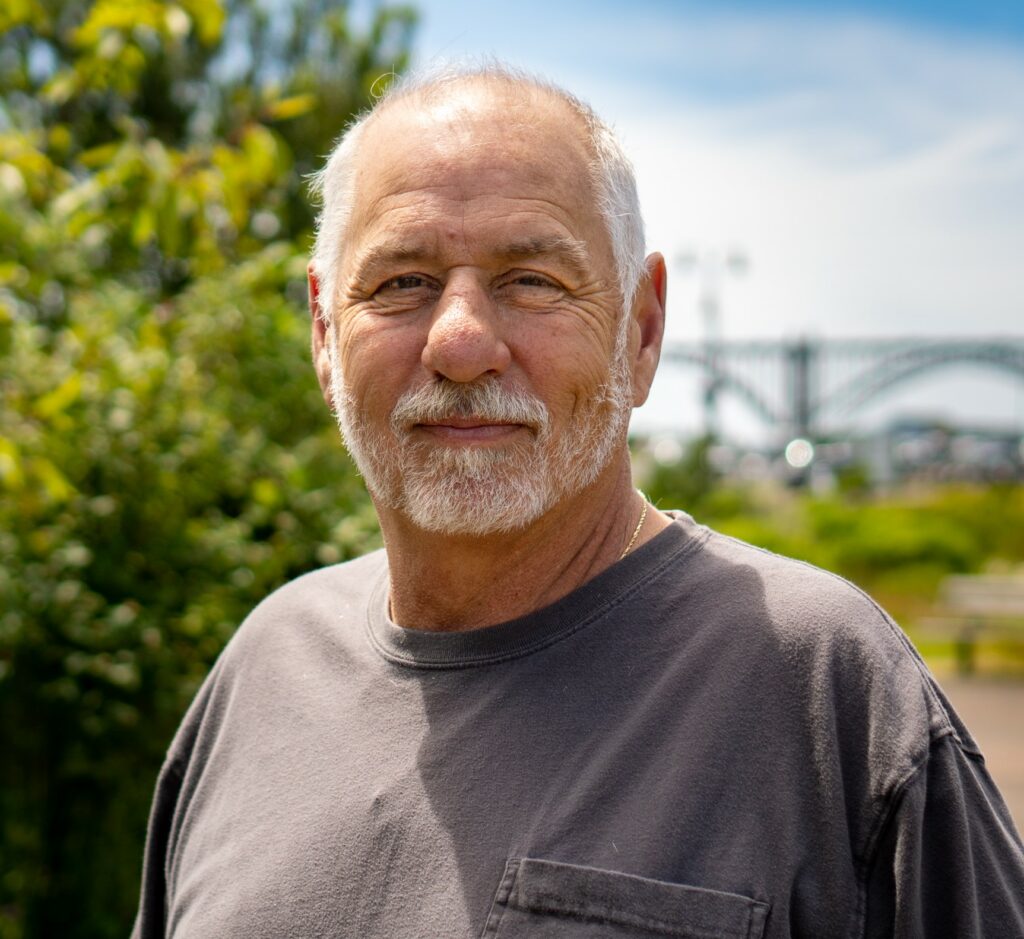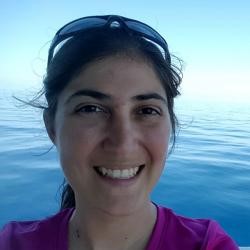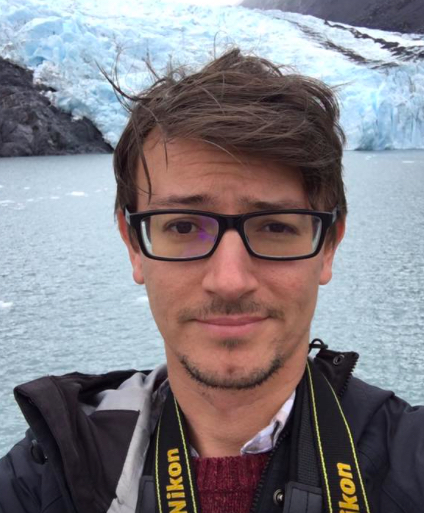
Lisa T. Ballance, Principal Investigator
Dr. Lisa T. Ballance is the Director of Oregon State University’s Marine Mammal Institute, Endowed Chair of Marine Mammal Research, and Professor of Fisheries, Wildlife, and Conservation Sciences. She has studied the ecology and conservation biology of whales, dolphins, and porpoises (and seabirds) for over 30 years around the world, including the tropical Pacific and Indian Oceans, Antarctica, the Bering Sea, and Cambodia’s Mekong River. Prior to joining OSU’s Marine Mammal Institute, Dr. Ballance was a scientist with the National Oceanic and Atmospheric Administration, where she directed NOAA’s Marine Mammal and Turtle Research Division in La Jolla, CA. She was Chief Scientist of NOAA’s Eastern Tropical Pacific Dolphin and Ecosystem Assessment Surveys, which provided the scientific basis for the “Dolphin Safe” label found on tuna cans in supermarkets all over this country. Dr. Ballance holds a PhD in marine ecology. She has published more than 100 peer-reviewed papers, working papers, and technical reports. She is recipient of the Department of Commerce Bronze and Silver Medals, NOAA Fisheries’ Supervisor of the Year, and cover feature of the Association for Women in Science.

Jay Barlow, co-Principal Investigator, Lead Acoustician
Jay Barlow is a senior scientist at NOAA Southwest Fisheries Science Center’s Marine Mammal and Turtle Division in La Jolla, California. He received a PhD in Biological Oceanography from UCSD’s Scripps Institution of Oceanography in 1982. His studies of human impacts on marine mammals have included research along the U.S. West Coast and in Hawaii, Mexico, Colombia, Central America, Antarctica, and China. He has authored or coauthored 110 professional papers and 75 technical reports. He is a member of IUCN’s Cetacean Specialist Group and Mexico’s vaquita recovery team. Dr. Barlow received the U.S. Department of Commerce’s Gold and Silver Medals for his work and is a recent finalist for a Samuel J. Heyman Service to America Medal. His research interests include abundance estimation and trend monitoring using visual and acoustic methods, stock assessment, population modeling, cetacean acoustic behavior and habitat modeling. His current work focuses on the use of passive acoustic methods to estimate abundance and monitor trends in marine mammal populations.

Robert L. Pitman, co-Principal Investigator
Robert Pitman is currently retired after spending 40 years with NOAA Fisheries as a marine bird and mammal ecologist. He has participated in over 120 cetacean research cruises around the world and published over 100 scientific papers and popular articles. His primary research focus for the past 20 years has been killer whale diversity and ecology. He lives in Newport, Oregon, with his wife — Marine Mammal Institute director and GyreX cruise participant — Lisa Ballance. Onboard the Pacific Storm during the GyreX cruise, Pitman will be part of the visual observation team, rotating off and on the 25x mounted spotting binoculars, searching for beaked whales during the daylight hours. When the right kind of beaked whales are located (one of several species of Mesoplodon), he will be out with a team in the launch attempting to collect DNA samples and photographs of whales that have perhaps never been identified alive in the wild before. How could you retire from that!

Yogi Briggs, Captain
Ron “Yogi” Briggs is the Captain of the R/V Pacific Storm and has worked for the Marine Mammal Institute for 10 years. He previously was a boat owner/operator commercial fisherman in Alaska for 30 years. Working on the ocean is a demanding, adventurous job that is always different and never dull. Yogi enjoys working on the many diverse projects for OSU, such as sea floor mapping, supporting the wave-energy test site project, the Ocean Observatories Initiative projects, the marbled murrelet studies, and many whale tagging trips in Oregon and California. As the Captain of the Storm, Yogi has had the opportunity to work with different scientists and groups from all over the country.

Craig Hayslip, Photographer, Drone Pilot, Biopsy
As a Faculty Research Assistant, Craig has been an essential part of the MMI for more than 15 years. Craig’s primary role is photo and video documentation of tagging efforts as well as managing the photo collection and processing whale photo-IDs. Craig holds a bachelor’s degree in zoology from the University of Washington. Craig has been working on the water since he was 10 years old, from helping on his father’s salmon gillnet boat to acting as a fisheries observer for NOAA in Alaska. Craig moved from Seattle to Newport in 2005 to work for the MMI as part of Bruce Mate’s Whale Telemetry Group. Craig has participated in tagging studies of large whales around the world. Craig lives in Newport with his wife Rika, along with their two cats and three chickens. Craig travels extensively, with trips to Japan, Guatemala, Belize, Myanmar, Ethiopia, Mexico, and Costa Rica. Craig’s many duties aboard the GyreX include drone pilot, visual observer, RHIB coxswain biopsy sampler, photographer, and watch stander.

Annamaria DeAngelis, Acoustician
Annamaria DeAngelis is a research biologist at the Northeast Fisheries Science Center in the Passive Acoustics Research Group. She is responsible for their analyses of odontocetes from both towed array and bottom mounted recorders, with a specialization in beaked whale passive acoustic monitoring (PAM). She has been using PAM to study beaked whales since 2007, and brings over a decade of experience to the GyreX expedition. This includes real-time and post-processed tracking of beaked whale groups on US naval ranges, collecting multi-year spatial and temporal distributions of North Atlantic beaked whale species, and a successful tracking and tagging effort of True’s beaked whale in the Atlantic. For the GyreX project, she’ll be putting her beaked whale acoustic tracking knowledge to the test and will be monitoring the incoming acoustic signals from a towed array in real time. She is really looking forward to seeing acoustic signals from the beaked whale species only found in the Pacific.

Todd Pusser, Photographer
A resident of Virginia, Todd Pusser has spent over 25 years working as a marine mammal observer in waters around the globe. In that time, he has surveyed for the Baiji, a possibly extinct species of river dolphin in the Yangtze River in China, conducted fieldwork on the critically endangered Vaquita in Mexico, and was part of an international team that placed the first acoustic dive tag on a beaked whale off the coast of Italy. A professional photographer, Todd’s images have appeared in publications around the world and have earned awards in prestigious international wildlife photography competitions such as BBC’s Veolia Wildlife Photographer of the Year. Holding down the fort back home while he is out in the field is his partner, herself a marine biologist, a pair of unruly dogs, and his beautiful daughter. For the Gyre Expedition, Todd will be a part of the visual observer team using high-powered 25x “bigeye” binoculars searching for beaked whales and act as one of the project’s primary photographers.

Daniel Gillies, Acoustician
Daniel Gillies is a post-bacc student in Oregon State University’s Fisheries, Wildlife, and Conservation Sciences program who is in the final year of his second bachelor’s degree, after obtaining a B.S. in Aeronautical & Astronautical Engineering from Purdue University (2006) and an M.S. in Aeronautical Science from Embry-Riddle in 2010. As part of his participation in the FW&C program at OSU, Daniel is preparing himself for a new career in marine biology, specifically with an interest in bioacoustics, following 15 years in Aerospace Engineering with roles ranging from Space Shuttle flight operations, to Infrared Astronomy, to his current role as a Mission Director for a commercial lunar payload services company. Daniel intends to continue his studies as a graduate student in 2022 (hopefully at OSU!) with a focus in bioacoustics and finding new ways to apply cutting edge technology to marine science. On the expedition, Daniel will be serving as one of the acousticians, listening for signs of beaked whales during our cruise. This will be Daniel’s first expedition at sea.

Julie Gedo, Cook
Julie served in education for over 20 years in university, private, public, and virtual settings and as a mentor in mathematics. She was certified in two countries due to citizenship in Australia and the United States. While teaching in the Caribbean, Julie enjoyed the sea so much, she became a tour guide giving tours to the Bioluminescent Bay and snorkel guide around the islands. She worked with the local students in the science, technology, engineering and mathematics (STEM) summer program, helping the students snorkel and see the difference between manmade and natural reefs. Her love for the sea has moved her into cooking on ships so she can stay close to the sea. She feels very fortunate to be part of the expedition on the Pacific Storm by helping everyone have delicious nutritious meals.

Ladd Irvine, Visual Observer
Ladd is a Senior Faculty Research Assistant and PhD student with the Marine Mammal Institute. In 1998, Ladd received his BS in Biology from the University of Puget Sound and shortly after began a temporary internship working with Bruce Mate entering data and logging/editing video for the then–OSU Marine Mammal Program. He transitioned into a full-time job as Dr. Mate’s Biological Technician, coordinating field logistics and participating in a variety of whale tagging expeditions both within the US and internationally. After completing his MS in Biological Oceanography at OSU in 2007, Ladd started work as a Faculty Research Assistant with Dr. Mate’s Whale Telemetry Group (now Daniel Palacios’s Whale Habitat Ecology and Telemetry Lab) and assumed more responsibility for data analysis, report writing, and field work, where he led expeditions to tag sperm whales in the Gulf of Mexico; gray whales off Oregon and California; blue, fin, and humpback whales from California to Alaska; and numerous shorter-duration re-sight expeditions. Most recently, in addition to his duties as a Research Assistant, Ladd started work on a PhD studying the foraging ecology of blue and fin whales. Ladd’s research has focused on using tracking data to characterize the distribution, habitat, and diving behavior of many large whale species. He has also assisted with the development of a novel satellite-monitored tag technology to study the diving and underwater feeding behavior of whales. Ladd lives in Corvallis with his wife Jenny and four-year-old daughter Sora. He is an avid homebrewer, loves reading, and has an identical twin brother, who also lives in Corvallis (fair warning!). On the Gyre Expedition, Ladd will be wearing many hats, primarily as a visual observer, and standing watches for the Pacific Storm. He will also participate in small boat work as a driver, biopsy sampler, or photographer.

Kevin Cool, Deckhand
Kevin Cool has worked in the commercial fishing industry for seven years and a marine shipyard for four years. He is serving on this vessel as a crew member/deckhand. On the Gyre Expedition, Kevin will provide essential support to the science team and will assist with ship operations aboard the Pacific Storm.